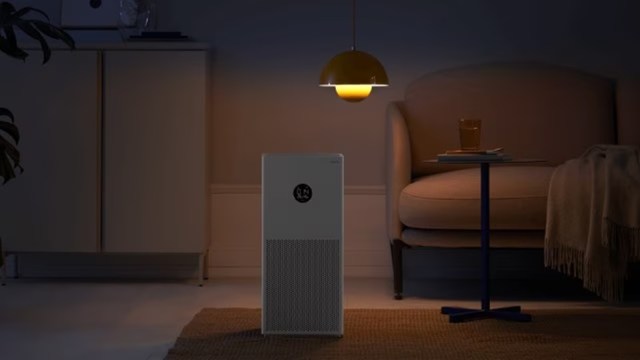As air quality worsens in various regions of the country, the demand for air purifiers has seen a significant rise. Experts emphasize that for air purifiers to be effective, they should be used in a closed room or with windows closed. However, it is essential to be aware of four key considerations before you make the decision to purchase an air purifier, ensuring a breath of fresh, clean air in your home.

With limited evidence about its efficacy, doctors recommend that air purifiers be used only by those with existing respiratory conditions or those who have other co-morbid conditions.
Dr GC Khilnani, chairman of PSRI Institute of Pulmonary, Critical Care, and Sleep Medicine, and a member of the WHO Technical Advisory Group on Global Air Pollution and Health, said: “It should be used only by the very elderly, such as those above the age of 80 years, with other co-morbid conditions like heart diseases. It should also be used by people who already have some respiratory disease and may need oxygen support for it.” He adds that it should be used only by those who are likely to be restricted to a single room for most of their day.
Story continues below this ad
Dr Arvind Kumar, a chest surgeon from Sir Ganga Ram Hospital, recommends it to his patients who are already suffering from certain lung diseases or have undergone a lung transplant. He said: “It provides protection only as long as you are in the room. Even then, not all purifiers are effective, and most people cannot afford them. So, it isn’t really ideal — there is a need to reduce pollution levels.”
He adds that people should ensure that their purifiers are working properly, as they may provide a false sense of security.
What should you look for when buying an air purifier?
When shopping for an air purifier, it’s essential to look for one equipped with a HEPA (High Efficiency Particulate Air) filter, capable of effectively removing allergens like dust, pollen, mold, and small particulate matter.
Story continues below this ad
Many air purifiers also incorporate ionic filters that emit charged ions to compel pollutants to settle. Additionally, a carbon filter aids in the removal of gaseous pollutants such as sulfur dioxide, nitrogen dioxide, and ozone.
Dr Khilnani recommends choosing air purifiers with both absorption and adsorption capabilities to address both particulate matter and gaseous pollutants. Some models include ultraviolet filtration systems to eliminate bacteria and viruses.
Another crucial factor to consider is the Clean Air Delivery Rate (CADR), which indicates the purifier’s capacity. It should exceed the room’s air volume to ensure effectiveness; using a small purifier in a large room is unlikely to yield substantial results. Furthermore, take into account electricity consumption and noise levels, as air purifiers typically run throughout the day.
What are the things you have to keep in mind to ensure that your air purifier is effective?
Story continues below this ad
For an air purifier to work effectively, it’s crucial to have all doors and windows in the room closed, similar to how you would with air conditioners. Additionally, place the air purifier away from walls to ensure the filters operate efficiently, remembering to change these filters periodically. Neglecting filter changes can not only hamper air purification but also potentially contribute to the spread of infections.
To maintain optimal air quality, it’s essential to keep the air purifier running continuously rather than just a few minutes before entering the room. Air purification takes time. Also, make sure the air purifier’s size corresponds to the room’s dimensions for optimal performance.
What does the evidence say about air purifiers?
There is some scientific evidence that shows that air purifiers can be effective in improving indoor air quality within enclosed spaces. A 2021 European study revealed significant reductions in particulate matter and gaseous substances when air purifiers were used. Specifically, the larger PM10 particles decreased by 90%, while the smaller PM2.5 particles were reduced by 80%. Additionally, the study noted a 50% decrease in the concentration of gaseous substances.
However, a 2015-16 experiment conducted in Delhi during winters highlighted that despite a “dramatic” reduction in indoor particulate matter levels due to air purifier use, pollution levels remained high enough to impact residents’ health. This suggests that in extremely polluted environments, the benefits of using an air purifier may have diminishing returns on improving indoor air quality.
Story continues below this ad
For situations where air pollution exceeds safety limits, the World Health Organization recommends the use of air purifiers both at home and in the office. Additionally, using air conditioners can help reduce the concentration of particulate matter in the indoor environment.

































